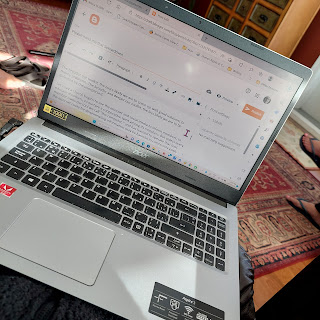Please hand me that Screwdriver!
The shower in our bathroom malfunctioned. When turned on, water sprayed out of places it shouldn’t, showering everything in the little room. It had to be fixed, and one look told me that a normally educated human with a normal battery of intelligence, education and experience should be up to performing a repair. I bought a new shower head and set to removing the offending part, but having no wrench that fitted the connecting nut, had to improvise with a pair of pliers, and a clumsy vice grip from my scanty tool collection. With my daughter’s help the repair did happen and blissful, uneventful showers were again possible.
Later in the same day, a screw holding the seat of a dining chair to its frame fell out, and although I do own a screwdriver with about 15 interchangeable screw tips, none would fit, and I improvised by forcing the issue with an inappropriate Phillips tip.
We all rely on whatever tools we own when it comes to navigating our way successfully through life in a complicated world. Not just the physical hammers and needles and rolling pins and floor mops, but the ability to think logically, the fluency of our language comprehension and expression, our self-control, our knowledge of the world beyond the immediate, our understanding of “how things work,” etcetera, etcetera; all these and more form the collection of tools with which we manage our lives.
The broader our toolkit, the more likely we are to come up with good solutions to thorny problems. The broader and deeper our toolkit, the less likely we are to be defeated by the unexpected.
Let’s say a church begins to use the internet and social media to inform members, to educate members, to nurture a cooperative spirit among its members. But unless every member owns the tool we call “the computer,” and has learned to operate that tool, the internet route for disseminating information may be harmful to community goals unless the church, maybe, buys a tablet or smartphone for everyone and teaches them to use it for communication purposes. A tool whose application you haven’t understood can become little more than another insoluble frustration.
I thought of calling a plumber to fix my shower head problem. He would have come in with a belt full of tools and fixed it while I sat on the balcony drinking coffee. Then he would have left behind a bill for, possibly, $125 and I would have taken out my phone and paid him online. Granted, I’m never going to possess the medical tools of know-how and scalpels to remove my own appendix, but woe to us if in the church we just “do for” people rather than taking the time to help them broaden their toolbox.
I visualize an adult Sunday School class where people who need it and are willing, sit around the table each with a church-supplied tablet and learn how to access, read and otherwise engage with it as a tool for participating as a full member in the workings of a congregation in a post-modern age. I have taught a few elderly people to use this tool for keeping in touch with distant family. They were very appreciative.
I’ll end these musings with a warning. We humans tend to make playthings of our tools, both the physical and the mental/emotional. We learn to use logic to resolve financial matters, and then make logic puzzles like Wordl for playtime. We invent cars for transport... and then race them. I’m not saying this is a “bad” development; I guess I’m thinking that applying moderation to the application of our “tools” is itself a tool that can be taught and learned.
I’d like to sign up as the first applicant for that course.




Comments
Post a Comment